Meeting Season Is Back
For many people, September is the time to go back to school, for others it is the hunting season that is fast approaching. But for many of us, it’s the return of the meeting season. This activity, which is essential to the proper functioning of a company or project, is often despised but is nevertheless perceived as important to the progress of projects according to the results of our in-house survey.
As mentioned by the authors of The science and fiction of meetings (published by MIT Sloan Management Review Winter 2007) employees spend a lot of time in meetings, which is constantly growing, and particularly like to complain about it. But privately, they see meetings as a productivity tool – a tool that companies should learn to use better.
It is on the basis of this statement that Beenote’s team said it would be more than important and interesting to measure the relationship that employees have with meetings. Therefore, we wanted to know and measure the current state of the meeting at work. This is what we did by questioning more than 1,300 people.
The following are the main lines of this study on meetings
Who are they?
- They work for companies with more than 251 employees at 37%.
- Almost 38% work in organizations with fewer than 25 employees.
- Among the respondents, it is noted that the age group of 40 to 59 years is represented by 60%.
- Their role in meetings is balanced between leader and participants equal to 47%.
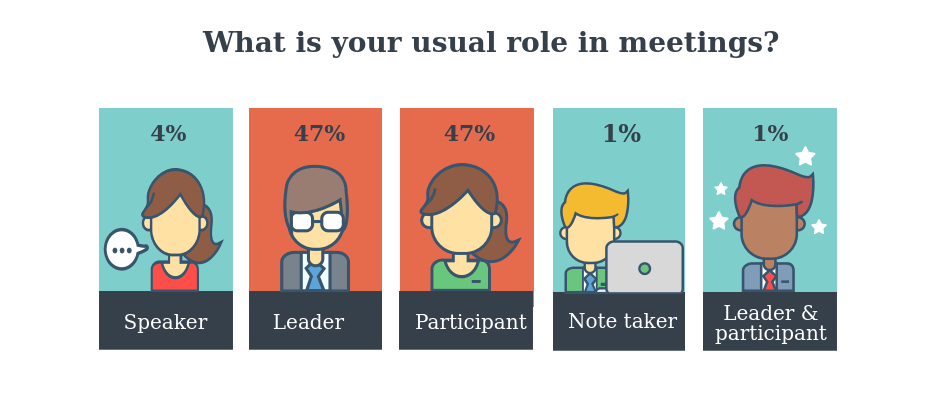
Now that we have an overview of WHO are interested in meetings.
Let’s explore how they practice their art:
- They often hold it, because nearly 60% do it several times a week.
- They are mainly (54%) between 4 and 6 participants.
- Their meeting length between 30 and 60 minutes for 49% of them.
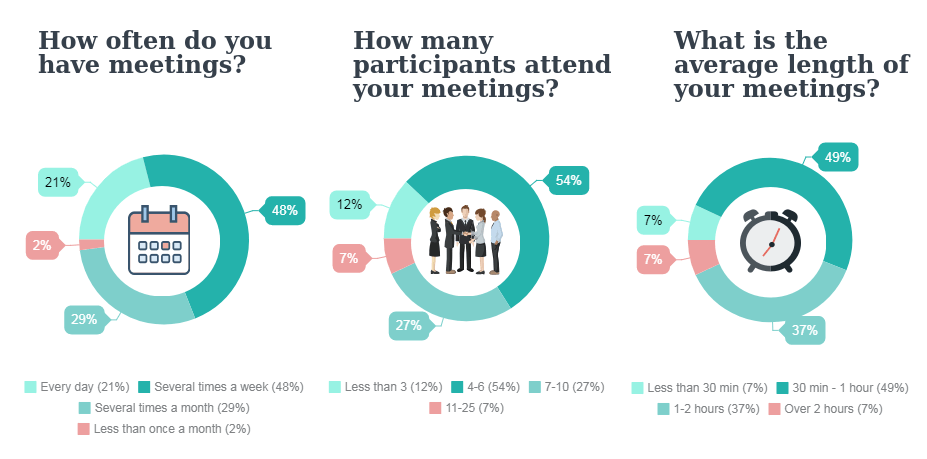
In general, they consider their meetings to be helpful (39% ) and necessary (35%). They consider that meetings have a positive impact on their projects (83%).
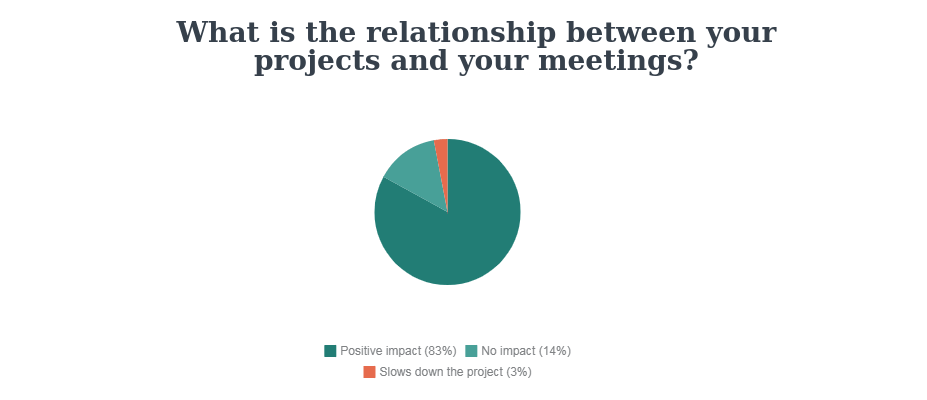
So, we can conclude that people have a positive perception of the meeting’s impact on their work outcome. However, in spite of this positive perception, nearly 80% of them indicated that they had problems in one or many stages of the meeting life cycle.
Here are the five main meeting problems:
- Lack of participant preparation at 28%
- Poor communication at 20%
- Time allocated is not observed at 17%
- No follow-up on tasks at 25%
- No minutes at 13%

Overall, therefore, the results are broadly similar to the MIT study. Employees and businesses in Canada are similar to what these American researchers surveyed 10 years earlier.
In our opinion, the best approach to help these people and their employers solve these many problems is to use a meeting management solution. Such a solution can easily maximize existing good practices while implementing new ways of doing things that replace those that are lacking.
We, therefore, asked participants what would be the reasons why they would use a meeting management software. The answer was very interesting. From sending an agenda in advance and clearer, a meeting minutes quickly accessible to task follow-up included in this solution should help managers better implement best meeting practices for maximum results.
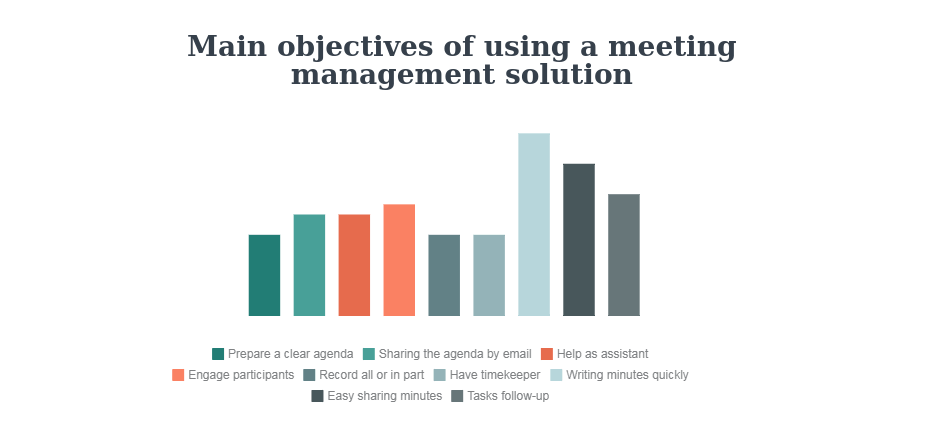
Beenote is a cloud-based meeting management solution for any sized business reaching to maximize the goals of holding efficient meetings. Beenote maximizes this process and integrates with your environment (Microsoft 365 & Google).
Trying is improving. Try Beenote







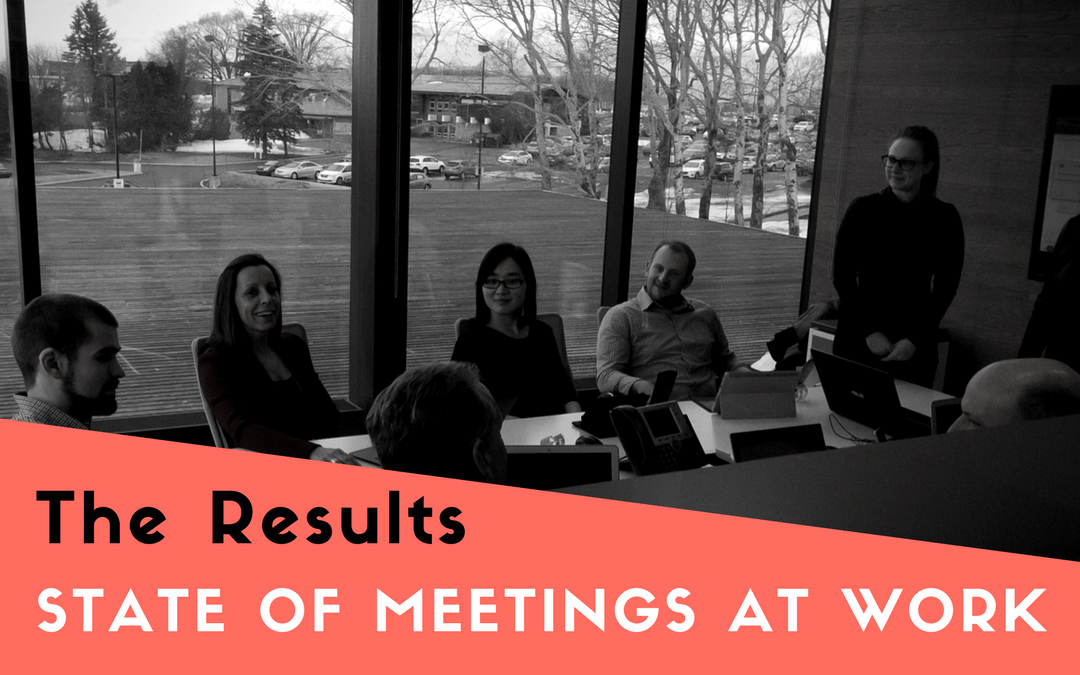
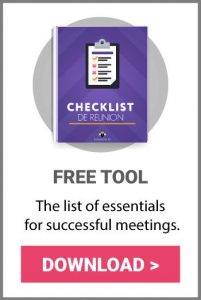

0 Comments